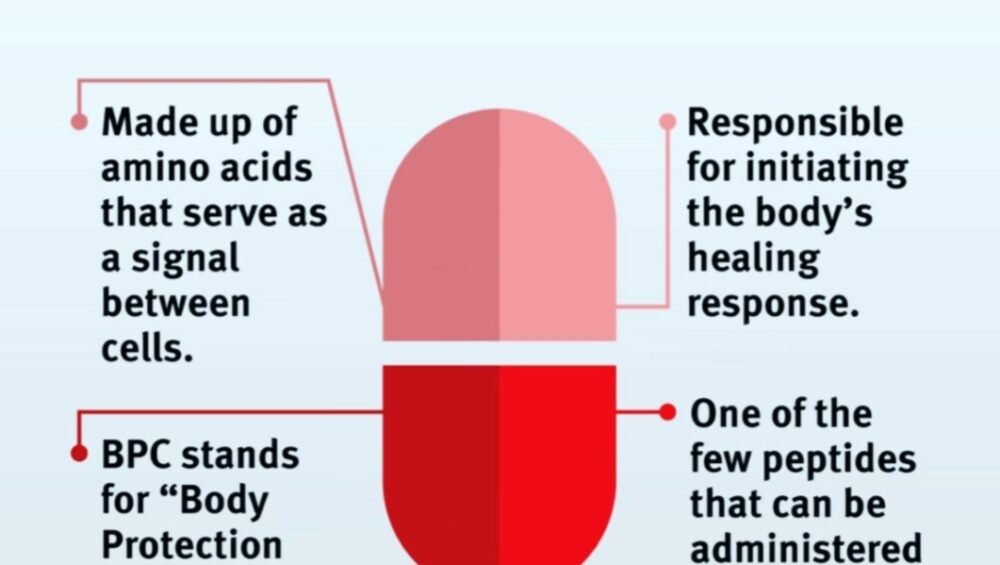
BPC 157: The Truth Behind the Wolverine Peptide
BPC 157 as Regenerative Peptide has taken the world of health and wellness by storm. Often nicknamed the “Wolverine Peptide” due to its supposed regenerative properties, BPC 157 has captured the imagination of athletes, fitness enthusiasts, and anyone seeking to optimize their recovery. But before you jump on the BPC 157 bandwagon, it’s crucial to separate fact from fiction.
This blog from Phoenix Supplement Store aims to shed light on the science behind BPC 157, exploring its potential benefits, limitations, and the current state of research.
What is BPC 157?
BPC 157 stands for Body Protection Compound 157. It’s a short chain of amino acids, the building blocks of proteins, found naturally in human stomach acid. Scientists have been particularly interested in its potential to promote healing and tissue repair.
The Hype Around BPC 157: Wolverine-like Regeneration?
Much of the excitement surrounding BPC 157 stems from animal studies suggesting it might accelerate healing in muscles, tendons, and even bones. However, it’s important to remember that these are animal studies, and the effects may not translate directly to humans. Additionally, the nickname “Wolverine Peptide” is misleading. While BPC 157 might offer some healing benefits, it’s not a magic bullet for achieving superhuman regeneration.
Unveiling the Science: How Might BPC 157 Work?
While the exact mechanisms of BPC 157 are still being explored, research suggests it might influence several processes crucial for healing:
- Reduced Inflammation: Inflammation is a natural response to injury, but excessive inflammation can hinder healing. BPC 157 might possess anti-inflammatory properties, promoting a more optimal healing environment.
- Enhanced Blood Flow: Delivering oxygen and nutrients to injured tissues is essential for repair. BPC 157 could potentially stimulate the formation of new blood vessels, improving blood flow to the injured area.
- Cellular Communication: Effective communication between cells is vital for coordinating the healing process. BPC 157 might influence certain signaling pathways, promoting better communication and coordination between cells involved in repair.
BPC 157 Research: Where Do We Stand?
Limited Human Studies: The majority of research on BPC 157 comes from animal studies. While promising, these findings need to be replicated in well-designed human trials to confirm its effectiveness and safety in people.
Focus on Specific Conditions: Existing human studies on BPC 157 are relatively small and often focus on specific conditions like stomach ulcers or leg wounds. More research is needed to understand its potential benefits for a wider range of injuries and conditions.
Dosage and Delivery Methods: Optimal dosing and delivery methods for BPC 157 are still being investigated. Current research explores various administration routes, including injection and oral ingestion.
BPC 157: Is it Right for You?
Insufficient Evidence for Widespread Use: Given the limited research on BPC 157 in humans, especially for a broader range of conditions, it’s too early to definitively recommend it for widespread use.
Consult a Doctor Before Use: If you’re considering BPC 157, it’s crucial to consult with a doctor to discuss its potential benefits and risks in the context of your individual health and any existing medical conditions.
Exploring Alternative Recovery Options: Several well-established supplements and strategies can support recovery after injuries. These include protein supplements, collagen, and physical therapy.
The Future of BPC 157: A Promising Field
Despite the limitations, BPC 157 represents a fascinating area of research in regenerative medicine. As scientists continue to investigate its properties and potential applications, it might one day play a more prominent role in promoting healing and recovery.
Here at Phoenix Supplement Store, we are committed to providing accurate and up-to-date information on health and wellness topics. While we cannot endorse BPC 157 for specific uses due to the lack of conclusive research, we encourage you to stay informed about this emerging field. Remember, consulting with a healthcare professional is always the best course of action before starting any new supplement or treatment plan.
Us Anti-Doping Agency (.org): BPC-157: Experimental Peptide Creates Risk for Athletes